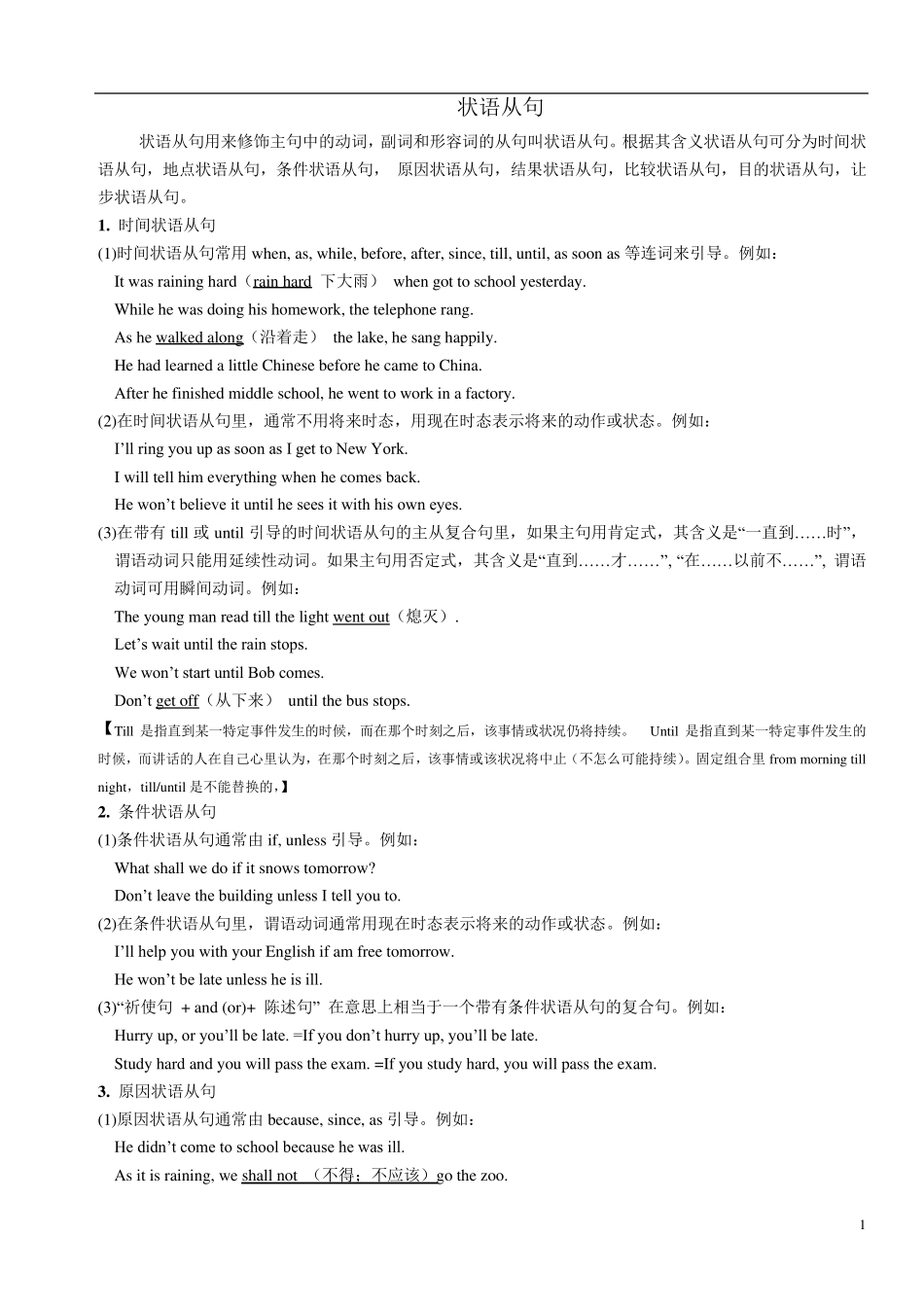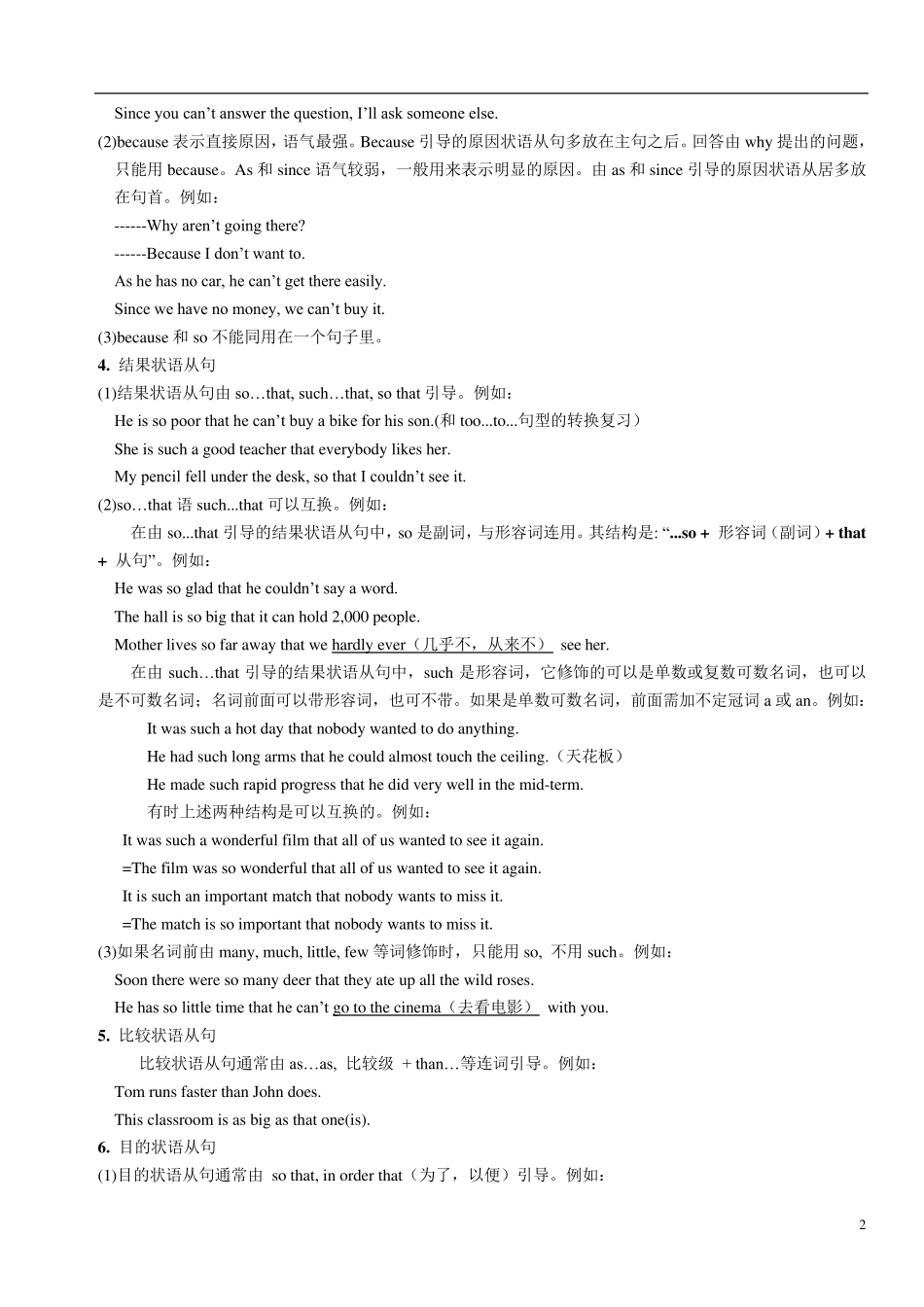1 状语从句 状语从句用来修饰主句中的动词,副词和形容词的从句叫状语从句。根据其含义状语从句可分为时间状语从句,地点状语从句,条件状语从句, 原因状语从句,结果状语从句,比较状语从句,目的状语从句,让步状语从句。 1 . 时间状语从句 (1)时间状语从句常用when, as, while, before, after, since, till, until, as soon as 等连词来引导。例如: It was raining hard(rain hard 下大雨) when got to school yesterday. While he was doing his homework, the telephone rang. As he walked along(沿着走) the lake, he sang happily. He had learned a little Chinese before he came to China. After he finished middle school, he went to work in a factory. (2)在时间状语从句里,通常不用将来时态,用现在时态表示将来的动作或状态。例如: I’ll ring you up as soon as I get to New York. I will tell him everything when he comes back. He won’t believe it until he sees it with his own eyes. (3)在带有 till 或 until 引导的时间状语从句的主从复合句里,如果主句用肯定式,其含义是“一直到……时”,谓语动词只能用延续性动词。如果主句用否定式,其含义是“直到……才……”, “在……以前不……”, 谓语动词可用瞬间动词。例如: The young man read till the light went out(熄灭). Let’s wait until the rain stops. We won’t start until Bob comes. Don’t get off(从下来) until the bus stops. 【Till 是指直到某一特定事件发生的时候,而在那个时刻之后,该事情或状况仍将持续。 Until 是指直到某一特定事件发生的时候,而讲话的人在自己心里认为,在那个时刻之后,该事情或该状况将中止(不怎么可能持续)。固定组合里 from morning till night,till/until 是不能替换的,】 2 . 条件状语从句 (1)条件状语从句通常由 if, unless 引导。例如: What shall we do if it snows tomorrow? Don’t leave the building unless I tell you to. (2)在条件状语从句里,谓语动词通常用现在时态表示将来的动作或状态。例如: I’ll help you with your English if am free tomorrow. He won’t be late unl...


